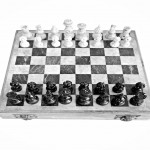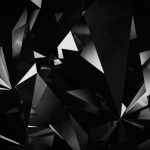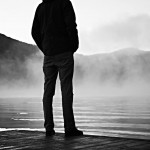The Divergent Series captured minds (and hearts) with its futuristic, apocalyptic-style scenes and the idea that people can be categorized by personality type. It’s not far off from truth.
Ever hear of the Myers-Briggs or the DISC Assessment? Each attempt to give us an analysis of our temperament / personality and condense them into detailed descriptions; the questionnaires are designed to ask just the right questions that tap into our most dominant qualities. They illustrate how we tend to (not always) respond in a given situation. Businesses, schools and anyone interested in some type of self-discovery can use them. Let’s call these assessments Divergent Condensed.
The Divergent society segmented entire classes and grouped them into factions:
Abnegation
Erudite
Dauntless
Amity
Candor
Faction-less
Then there’s the Divergent, represented by Tris, who is seemingly different by her general inability to “fit in.” Her mind works different from the others, even though she selected Dauntless. Part of the reason she couldn’t fit in, that there was no class for her was because she was a combination of them all. Observe her role closely and you’ll see at any given time, like Four’s aspiration, she could manifest any of the faction’s qualities. Not to mention she also possessed a rebellious streak. She couldn’t think like just one class because she saw beyond just one class.
Is this possible to do?
Whether the author was inspired by it or not, there truly is a cognitive pattern called divergent thinking. And it’s this kind of thinking that rests at the heart of the SAGE Mind book (coming soon) and Art of Learning. Divergent thinking gives you the power to see what people tend to overlook and approach situations from angles not considered. Consequently, you gain different results because you’re doing things differently. Divergent thought is a hallmark stamp of creative thinking and originality.
Can Divergent Thought be (Self) Taught?
I’d like to think so, as I’ve been divergent-ing my thinking since freshman year in undergrad (so many, many, many years ago). It’s my position that you can crack the mind open like an egg and consciously build it like you would a bicep with a bench press. It’s going to be tested, tired out, challenged, twisted and eventually reshaped not by mere chance and living passively, but actively engineered to your liking with strategic precision. You’re highly encouraged to visit the free Total Immersion audio course for the beginning steps to becoming a mind engineer.
I’m here to say you can create a gymnasium for the body AND mind.
Divergent thinking is about patterns and pulses, as are all thoughts. The more you think the same thought, the stronger the thought and its influence on you and your environment; the pulse gets stronger. Just like if I practice the diamond finger technique 100 times a day, the electrical signals (pulses) for that movement improve. I get faster and stronger and more accurate. Thoughts work this way.
So by adding the word divergent to thinking, all I’m doing is adding different thinking, different pulses to my cognitive collection.
Just compare the pulse, energy and voice of someone saying weakly, “I’m going to try to do good!”‘to someone saying in a commanding tone, “I am going to takeover the industry.” You can feel whose thoughts are stronger.
To demonstrate, I will highlight my own experience.
Without ever knowing about this word “Divergent” years ago, I made a conscious choice to expose my mind to many unique ideas. My thing was to not be a [insert boxed-in label here], but to become a multi-dimensional thinker who could journey into any subject and handle it. I did it out of natural, insatiable curiosity and probably insane drive, but also because I realized that owning different perspectives was an asset.
I remember sitting in classes with professors who held so strongly to their views that they were unable to see outside their specialization. So the biology professor couldn’t think philosophically, and the health education professor could only think like a western practitioner, and the business professors couldn’t step outside and think holistically (people over profit).
You see, we live in a holistic, organic, ever-mingling world, not one that’s segmented by textbook subjects! And as we learn about water on Mars and super earths and how space is like a literal fabric, the way we see our existence must adapt and become more accurate. This is difficult to do if you only “stay in your lane” and feel comfortable with what you already know. All areas flow into each other.
Of course gaining complete mastery in every single subject is silly; we simply don’t have the lifespan (right now) to do that. But I learned we CAN acquire the thinking ways of the many disciplines and blend them within our personal existence. Here are a few of mine with quick insight into the use (using a quick notes format; too much detail otherwise):
The Scientist
Learns to see the world through discovery and defining the patterns. Gives structure to nature’s circumstances and creates methods to repeat nature’s effects. Strong with experimentation, testing, modeling and demonstration.
The Philosopher
How to think. The many ways to contemplate on the unseen aspects of our world. Intuition, how to become happy, how to love, the whys of existence, how to deal with humanity and other living beings. Management of life, the relationship of humanity.
The Businessperson
Establishment of systems. Objective outlook of situations, perception of economical thinking, of utility, of value and exchange for gain, profit motive. Becoming resourceful. How to build an organization. How to build and step away from the organization. Understanding clients. Psychological / emotional profiles to meet customer needs.
The Artist
Creativity, the kind without structure, self-expression manifested out into the world, into form, the way of doing something. Becoming better at an action. Passion for the craft and the creation process.
The General
The commander in war. Understanding battle and the nature of competition. Developing the resolve to handle conflict. Keeping a distant view, the forest instead of the trees, understanding landscapes and battle strategy and the theater of war.
The Star-Child
The blend of the enlightened and the wild child. A return to the imagination. Becoming a child of the universe and not just a citizen of a country or of a planet.
The Übermensch
Nietzsche’s Superman, man as something to be overcome, a new level of human condition. Furthering inner heights, greater reach, deeper experience, heightened talents. Sharpening one’s claws without having to use them. Sharpening the sword but not having to cut.
The Writer
Ability to express using words. More than that, accessing the power of words at will in all their inherent capacity to influence the human pulses. Using words to “spell” affirmations and positive thought.
The King
Developing responsibilities. Responsible for “kingdoms” which could be one’s home, car, apartment, relationship, social connections, any space that’s used by me. Developing skills to become the builder and maintainer of those kingdoms and seek their consistent growth.
The Spiritual Seeker
Maintain and evolve the inner sense / innocence that’s naturally connected to God. Discover within oneself the ways to strengthen the connection and remain open to receiving the blessings that connection provides. To be a powerful steward of those blessings. To use the power for advancement.
The Ninja
The art of stealth, of subtlety. Swiftness in mind and body. Resourcefulness and transformation. Keenness. Connection with nature.
The Joker
Sensibilities and humor. The underestimated. The court jester not seen coming.
The Monk
Aim to master mindfulness and self-control. Developing the capacity to resist idiot temptations, delayed gratification for the future bliss. Conquering stress.
The Healer
Focus on the repair of self and empowerment of others. Understanding the threads of life, life force and how that influences health.
The Warrior
Knowing the right time to go into battle. To “strike through without hesitation” once committing to attack. Aiming to destroy with resolve and defend with life.
The Detective
Art of perception and observation. Using the senses and intuition to understand the nature of things.
The Angel
Being there for people in need. Knowing when one is placed in my path to receive assistance so they can move on to the next level.
The Engineer
Seeing my evolution as a process I can consciously design with the proper knowledge, habits and wisdom.
There may be others. It’s my intention that this list gives you an idea of how we can expand our own Divergent thinking. When the situation calls for a certain mindset, you can access it because you’ve trained your mind to see from that point of view. This helps with discovering solutions and the added benefit from seeing from all of the other points of view at the same time. Originality can be the result.








